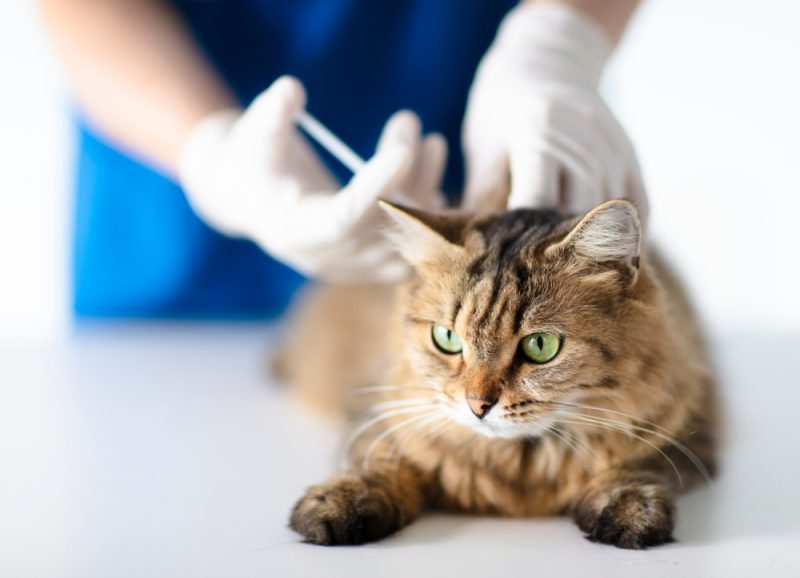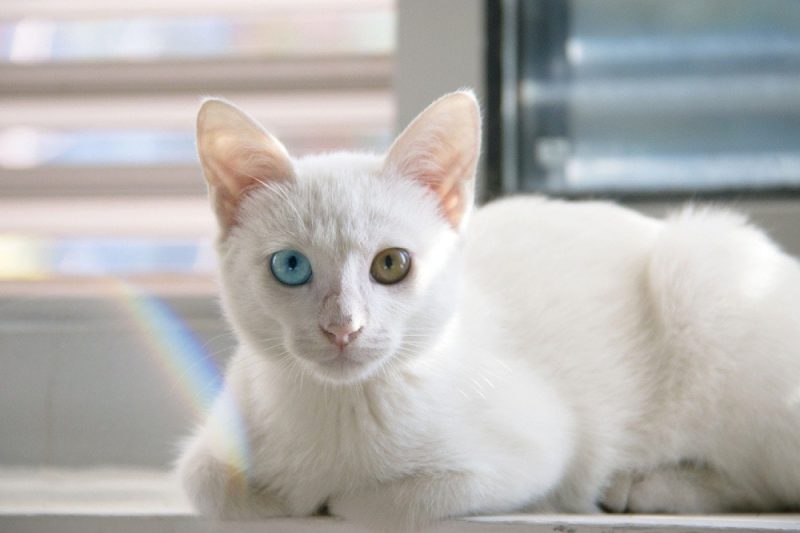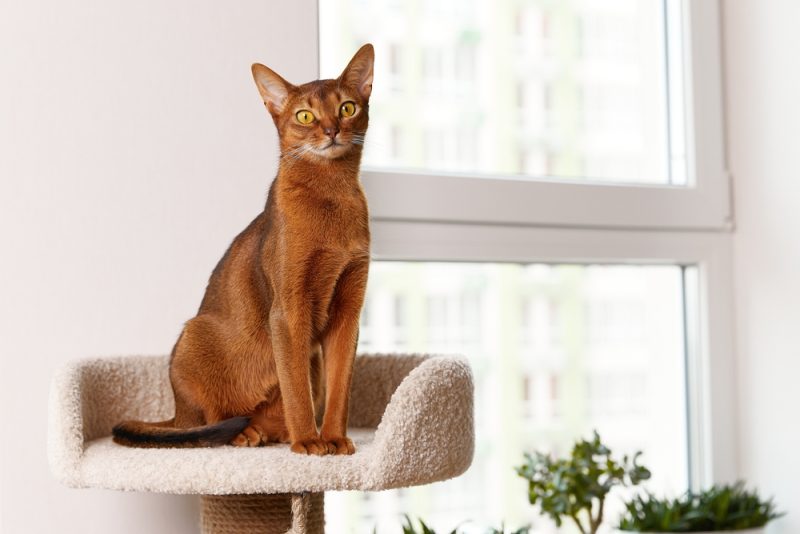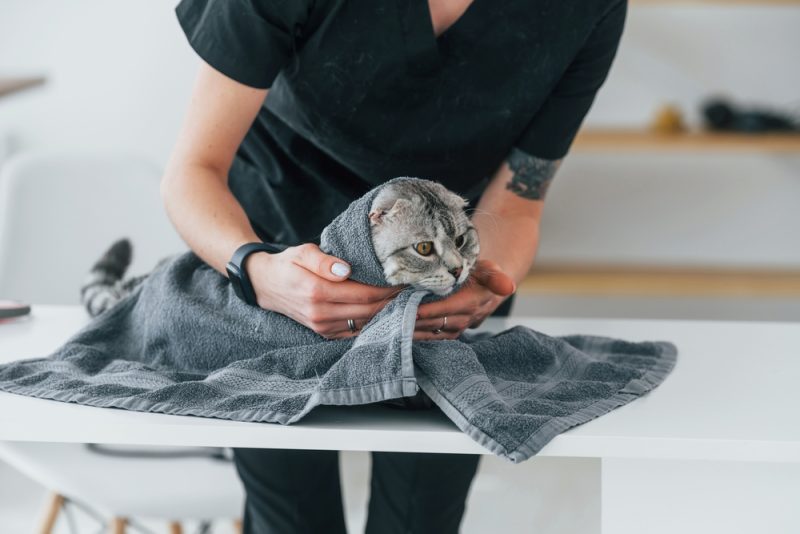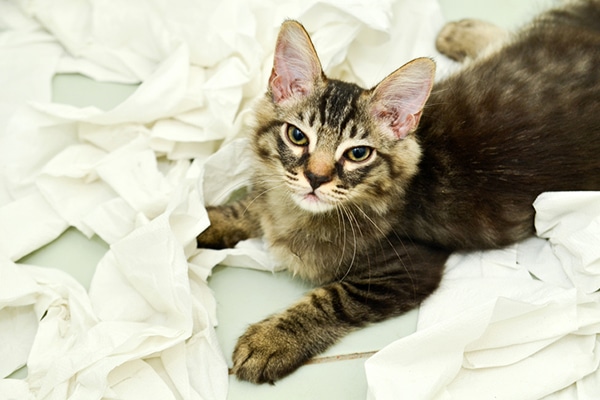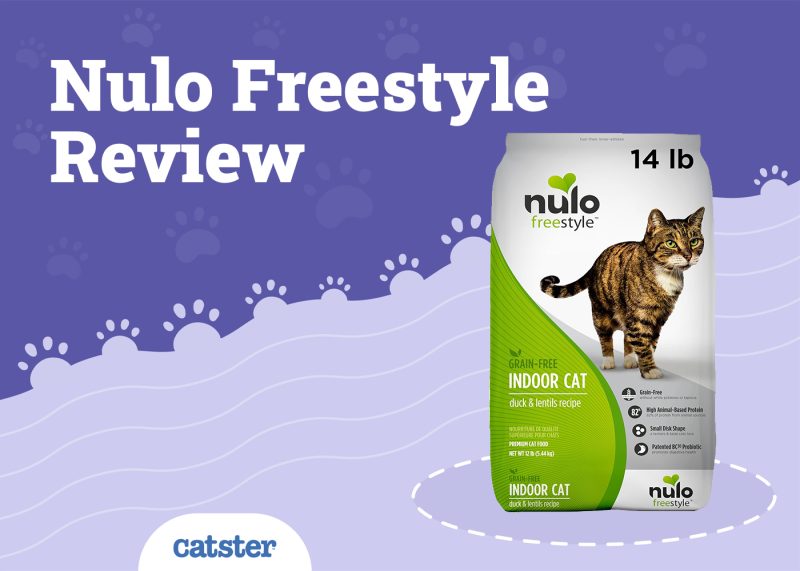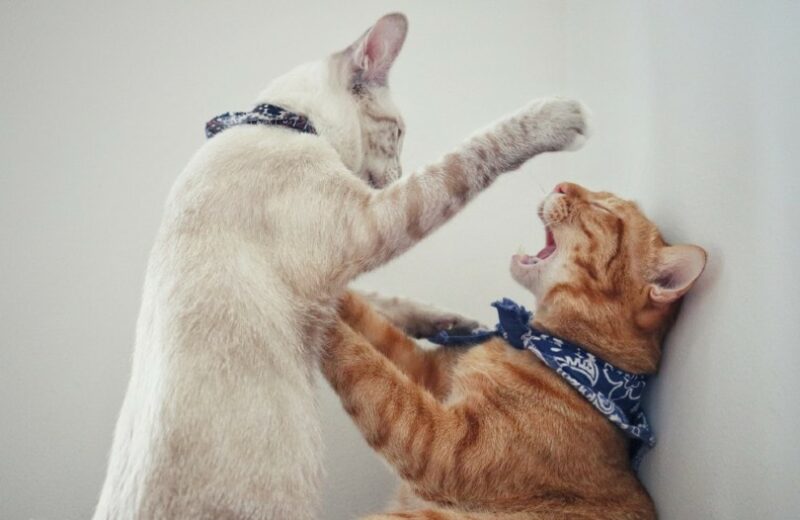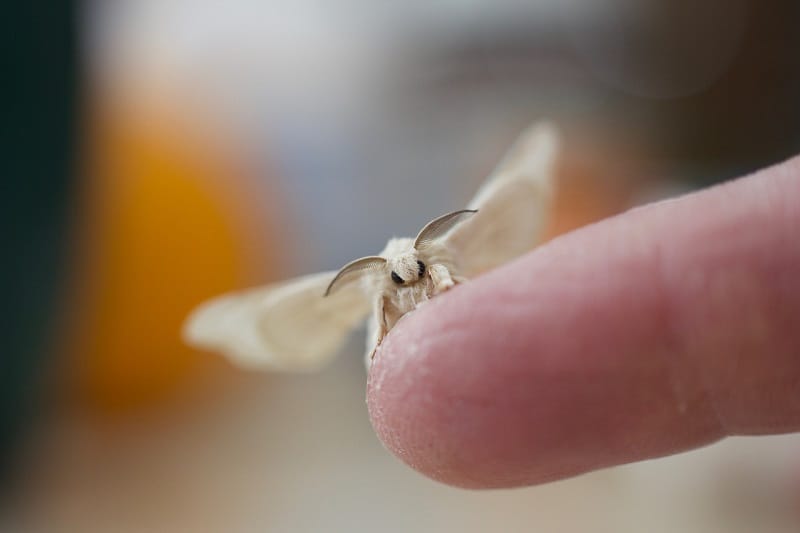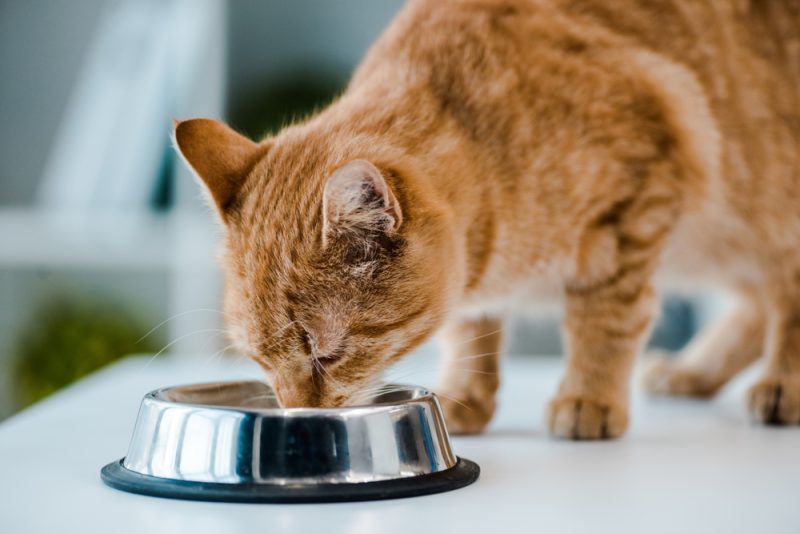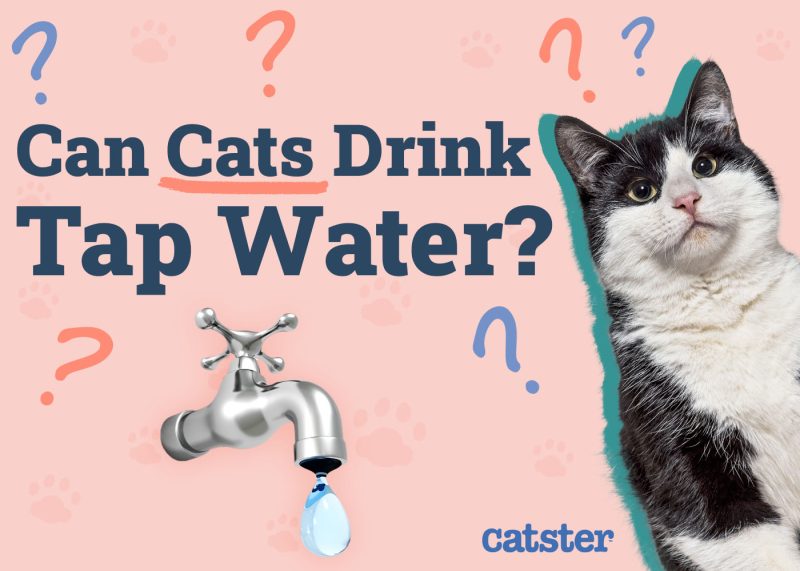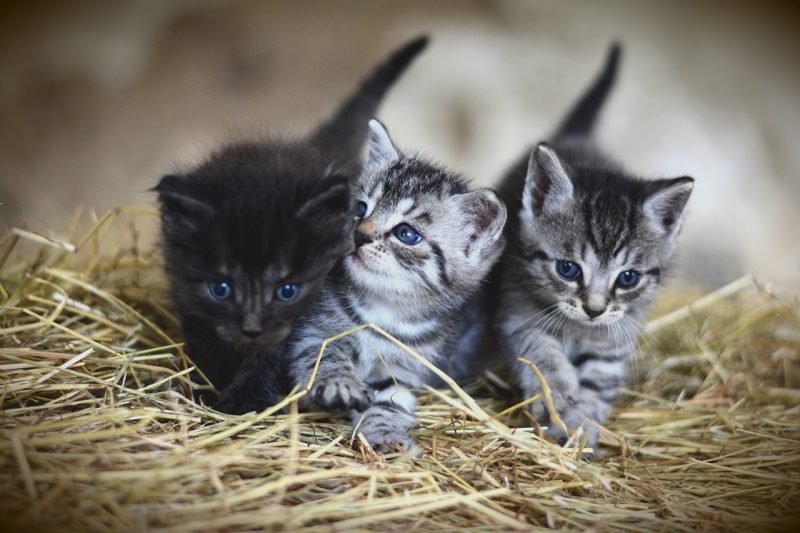In this article
Feline distemper, more commonly known as feline enteritis or panleukopenia, is a highly contagious disease caused by a member of the parvovirus family that can put kittens’ lives at risk if they are not vaccinated. Feline distemper, which is not related to canine distemper, is shed in the bodily fluids of infected cats, even those that are in the recovery phase. The virus is stable in the environment, which means that a cat can become infected without having direct contact with another cat, and humans can carry the virus on their clothing or shoes.
This condition affects unvaccinated kittens and cats, as well as immunocompromised individuals. The virus is usually fatal in kittens under 8 weeks of age, with cats under five months old most likely to be affected. Adult cats can have subclinical infections, and therefore shed the virus for brief periods without any signs of illness.
Fortunately, the vaccine, which is included as part of the core vaccinations, is highly effective against this disease, and can be given from 6 weeks of age. To complete the primary course and ensure protective immunity it is then given again at a 3-4 week interval. It depends on the brand whether the vaccine should be given once a year or once every 3 years. A vet can give you information on this. The distemper vaccine is administered only by a veterinarian. So, for your cat to have immunity to feline panleukopenia, a veterinarian must vaccinate your pet.

Feline Parvovirus (Distemper) and the Clinical Signs
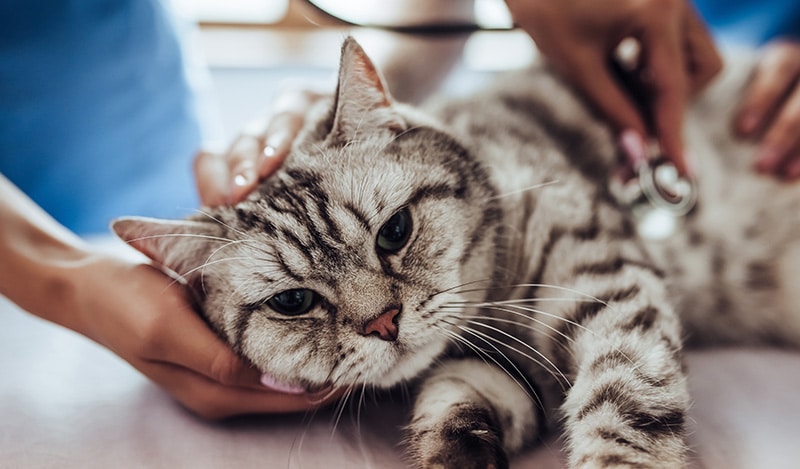
Feline panleukopenia can affect several systems in the body, including the nervous, immune, and digestive systems, though the digestive system is most often affected. This virus affects cats and other animals, such as raccoons, ferrets, and minks. It is an aggressive virus that can lead to the following clinical signs:
- Abundant diarrhea (sometimes with blood)
- Vomiting
- Severe dehydration
- Eye discharge
- Runny nose
- Fever
- Lethargy
- Painful abdomen
If a pregnant cat becomes infected with feline parvovirus, this virus can pass to the fetus(es), causing abortion of the fetuses, and kittens born from an infected cat may have a condition called cerebellar hypoplasia.
Infected cats shed the virus through urine, saliva, vomit, feces, and mucus. The virus begins to be eliminated 3 days before the development of the clinical signs. In some cases, cats that are recovering will still shed the virus.
Feline distemper is transmitted through direct contact with infected secretions or the affected animal and with objects that come into contact with the infected animal (food and water bowls, bedding, etc.). Humans can also spread the virus on their clothing and shoes. Being highly stable in the environment, powerful disinfectants are needed to kill the virus, such as 2% strength household bleach. This is also a reason why it is recommended to vaccinate indoor only cats as well, as their human caregivers may bring the virus in from outside on their clothes etc.
Is There a Treatment for Feline Distemper?
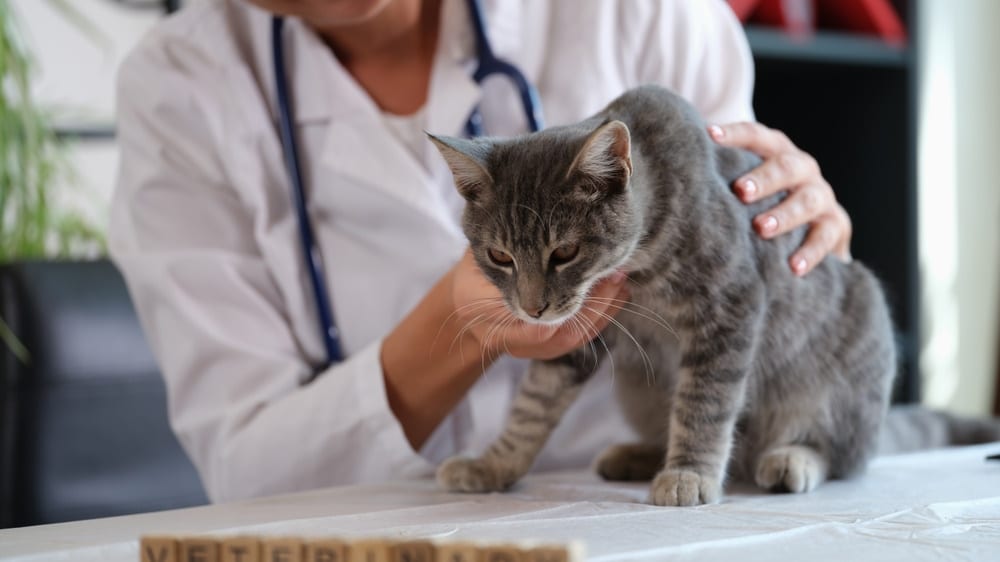
Being a viral infection, there is no specific treatment for feline panleukopenia. Treatment therefore involves providing supportive care, including intravenous fluid therapy and medications to limit vomiting, diarrhea, and fever. Cats and kittens that are infected with panleukopenia virus often have concurrent infections with intestinal worms, so worming treatments are also usually given.
What Is the Distemper Vaccine for Cats?
Vaccines work by stimulating a response from the immune system to a virus or bacterium. This creates a “memory” in the immune system. This immune memory enables the body to “remember” a particular virus or bacterium so it can defend itself against the invader if it returns and prevent the disease that it causes.
The role of the distemper vaccine is to reduce clinical signs and mortality from infection. This vaccine is available under several names, including:
- Nobivac Feline 1-HCP
- TruFel HCP+Ch
- Feline Focus CAT VAX 3
- Feline UltraNasal FVRCP Vaccine
- Fellocel 4
Depending on the manufacturer, there are three different types of vaccines:
- Inactivated virus vaccine
- Modified live vaccine* (attenuated vaccine)
- Hybrid vaccines
*Live vaccines should not be given to pregnant females, immunocompromised cats or kittens under 4 weeks.
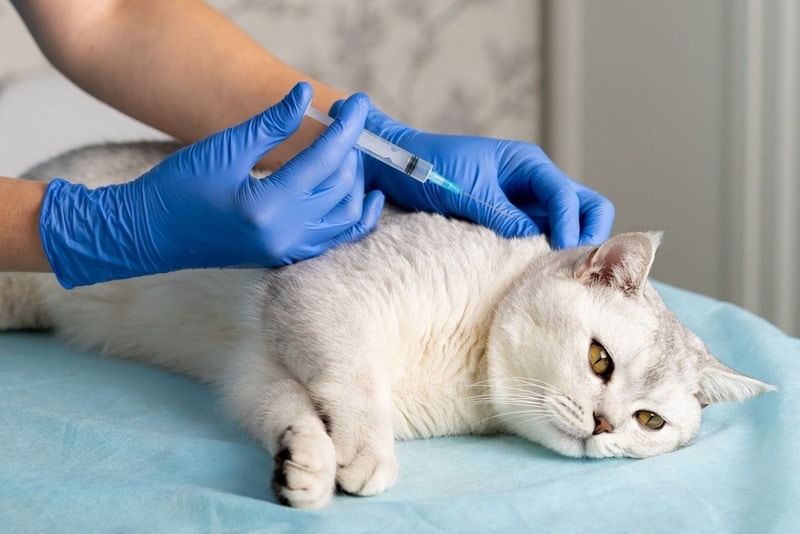
How Is the Distemper Vaccine for Cats Administered?
The feline distemper vaccine can be administered starting at 6–8 weeks of age. After the kitten’s first vaccination, two boosters are recommended 3–4 weeks apart. All three doses of the vaccine should be given by the time that your kitten is 18 weeks old.
This vaccine is available in injectable form (for subcutaneous administration) or intranasally, where a small amount of fluid is flushed into the nose. Adult cats that have never been vaccinated will receive the distemper vaccine followed by a single booster after 3–4 weeks.
What Happens If You Miss a Dose?
Life gets in the way some-times and you may have missed your cat’s vaccination due date. The important thing to do is schedule a new appointment and go to the vet as soon as possible.
If you missed the first booster (at 1 year of age) and more than 6 weeks have passed since the initial vaccine, the vaccination schedule must be resumed.
Potential Side Effects of the Distemper Vaccine for Cats
Like any other medicines, vaccines can lead to adverse effects. Fortunately, the side effects are rare because vaccines are typically safe. Usually, the side effects are simply the of result immune stimulation, and may include:
- Less interest in food in the first 24–48 hours after vaccination
- Mild fever
- Swelling at the vaccination site (in the case of subcutaneously injected vaccines)
- Soft stools
- Lethargy
These clinical signs will disappear in a few days.
If your cat is allergic to one of the components of the vaccine, an allergic reaction may occur. Fortunately, this is extremely rare. Signs of an allergic reaction to vaccination include:
- Rash
- Itching
- Swelling of the face (lips, eyelids)
- Diarrhea
- Breathing difficulties
- Collapse
If your cat shows these clinical signs after receiving the vaccine, take your pet back to the vet immediately because it can be life threatening.
If you need urgent veterinary advice, consult a vet online.
If you need to speak with a vet but can't get to one, head over to PangoVet. It's an online service where you can talk to a vet online and get the advice you need for your pet — all at an affordable price!

Also, take your cat to the vet if the injection site is still swollen or a lump is present a few months after the vaccination. Some cats are genetically predisposed to develop a granuloma at the injection site. If the lump is painful, inflamed or growing, get your veterinarian to check it over and don’t wait.
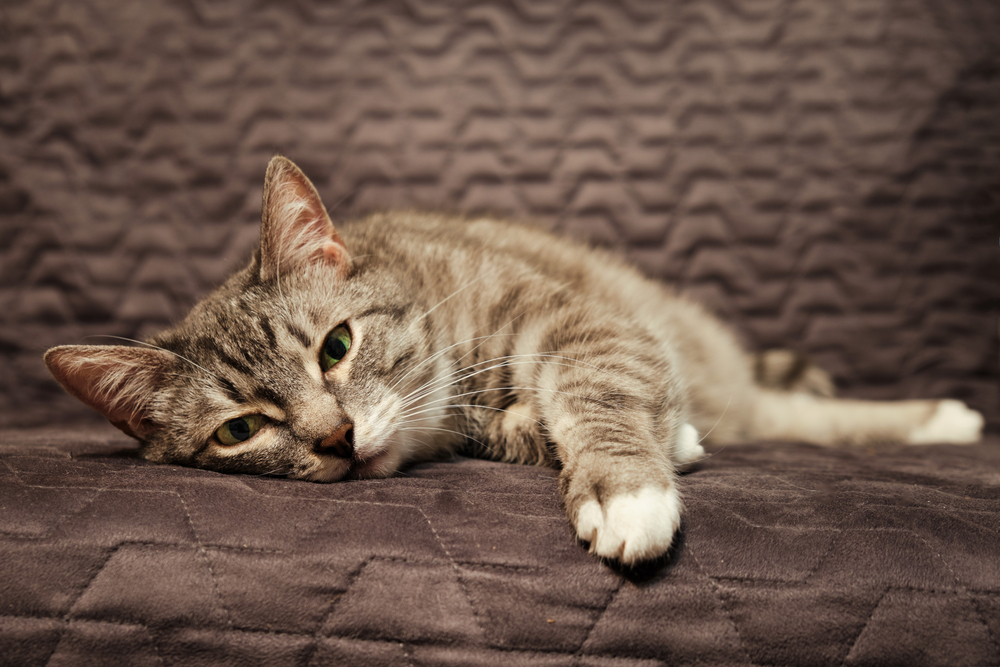

Frequently Asked Questions (FAQ)
What Should I Do If I Suspect That My Cat Might Have Distemper?
If you suspect that your cat is infected with feline panleukopenia, contact the veterinarian as soon as possible. If you can, take a stool sample to the vet when you take your cat, so they can test for distemper. The sooner an infected cat is started on supportive treatment, the greater their chances of survival.
How is Feline Distemper Diagnosed?
Diagnosis of feline panleukopenia is initially based on the clinical signs combined with lack of vaccination, and severely low white blood cell count. A positive fecal test will confirm diagnosis, however, as the virus is only shed in the feces for a limited period of time after infection, a negative test does not necessarily rule it out.
What Diseases Look Similar to Feline Distemper?
Many gastrointestinal diseases can have clinical signs similar to distemper. These can include intestinal parasites (giardia, tapeworms, other intestinal worms) or gastrointestinal infections (viral or bacterial). Common clinical signs of all these conditions are diarrhea, vomiting, dehydration, fever, lethargy, decreased appetite, and weight loss. If your cat shows these clinical signs, take them to the vet for a proper diagnosis and appropriate treatment.
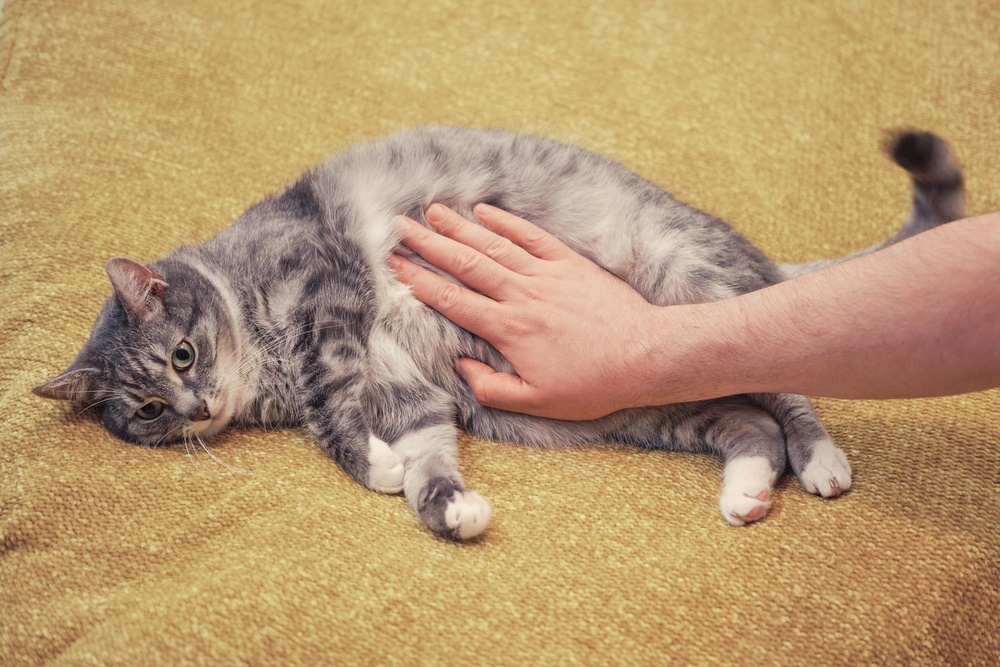

Conclusion
The distemper vaccine for cats is available under several names and can be given by injection or intranasally. Its role is to protect your cat from feline distemper, also called feline parvovirus and feline panleukopenia. This condition is extremely contagious and is transmitted through direct contact with an infected animal, their secretions (urine, saliva, vomit, feces, mucus), or contaminated objects. Clinical signs may include vomiting, diarrhea, fever, lethargy, lack of appetite, eye discharge, runny nose, painful abdomen, etc.
Cats are vaccinated starting at the age of 6–8 weeks, and until the age of 18 weeks, they must have three vaccinations. If you missed the vaccination date, take your cat to the vet as soon as possible.
Featured Image Credit: Tom Wang, Shutterstock
